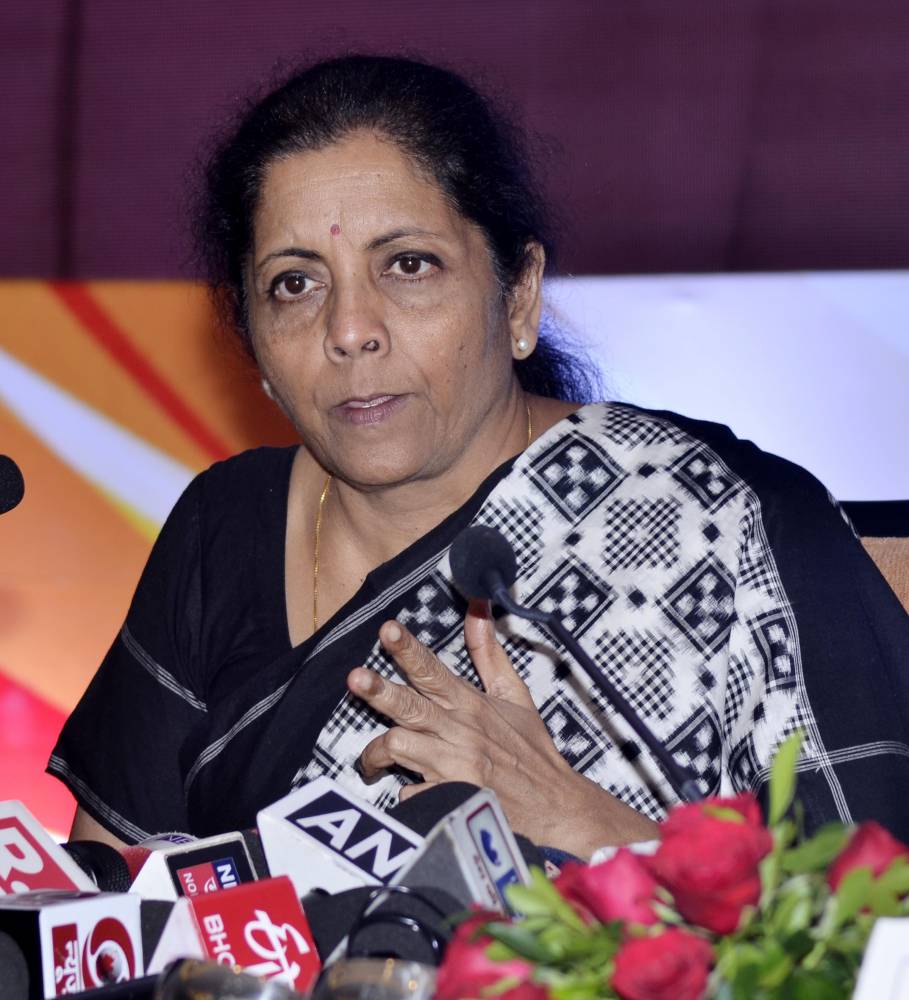
The Indian Finance Minister Nirmala Sitharaman announced the third tranche of the economic package through a press conference on May 15, 2020. The package was initially announced by the Indian Prime Minister as part of COVID relief under the Atma Nirbhar Bharat Scheme on May 12, 2020. The economic package is cumulatively worth Rs. 20 lakh crores.
Today’s announcements were focused on the agriculture and allied activities sector. Largest proportion of Indian population is dependent on agriculture. 85% is held by small and medium farmers. Indian farmers have endured many hardships and helped us reached global benchmarks.
Recap of the support systems established during the lockdown for the agriculture and allied sectors:
1. Minimum Support Price (MSP) purchase of amount more than Rs. 74,300 crores.
2. PM KISAN fund transfer of Rs. 18,700 crores.
3. PM Fasal Bima Yojana claim payment of Rs. 6,400 crores
4. 560 lakh liter per day procured by cooperatives against the daily sale of 360 lakhs liter per day
5. Total 111 crore liters extra procured ensuring payment of Rs. 4100 crores.
6. A new scheme to provide interest subvention @2% per annum to daily cooperatives for 20-21
7. Additional 2% p.a. interest subvention on prompt payment/interest servicing.
8. This scheme will unlock 5000 crores additional liquidity, benefitting 2 crore farmers.
9. All 4 COVID related announcements for fisheries were implemented.
10. Registration of 242 registered Shrimp hatcheries and Nauplii rearing hatcheries expiring on March 31, 2020 extended for 3 months.
11. Operations of marine capture fisheries and aquaculture relaxed to cover inland fisheries.
11 measures were announced today. 8 of them were related to strengthening the infrastructure, building logistics, storage, and capacity followed by 3 pertaining to government and administrative reforms.
Key highlights:
1. Rs. 1 lakh crore agricultural infrastructure fund for farm gate infrastructure for farmers:
• There is a lack of cold chain and post-harvest management infrastructure in the vicinity of farm-gate causing gaps in the value chain.
• Fund will be provided for funding agriculture infrastructure projects at farm-fate & aggregation points.
• Fund to be created immediately.
2. Rs. 10,000 crores scheme for formalization of Micro Food Enterprises (MFE):
• The scheme promotes the vision of PM: ‘Vocal for Local with Global outreach’.
• Unorganized MFEs units need technical upgradation to attain FSSAI food standards, build brands and marketing.
• The scheme would help 2 lakh MFEs attain the above goals. Existing micro food enterprises, farmer producer organizations, self help groups and cooperatives will be supported.
• Cluster based approach will be taken to improve health and safety standard, integration with retail markets and improved incomes.
• The scheme will also help in reaching untapped export markets in view of improved health consciousness.
3. Rs. 20,000 crores for fishermen through the Pradhan Mantri Matsya Sampada Yojana (PMMSY):
• This would help fill critical gaps in the fisheries value chain.
• Rs. 11,000 crores for activities in marine, inland fisheries and aquaculture and Rs. 9000 crores for infrastructure.
• There is also a provision for ban period support to fishermen, including both personal and boat insurance.
• This will lead to additional fish production of Rs. 70 lakh tonnes over 5 years, employment to over 55 lakh people and double the exports to reach Rs. 1,00,000 crores.
• The focus will be on islands, Himalayan states, north east and the aspirational districts.
4. National Animal Disease Control Programme:
• The program for Foot and Mouth Disease (FMD) and brucellosis launched with total outlay of Rs. 13,343 crores.
• It ensures 100% vaccination of cattle, buffalo, sheep, goat, and pig population (total 53 crore animals) for FMD and for brucellosis.
• Till date, 1.5 crore cows and buffaloes have been tagged and vaccinated.
5. Animal Husband infrastructure development fund of Rs. 15,000 crores:
• India has many areas with high milk production and has a great potential for private investment in dairy.
• The government aims to support private investment in dairy processing, value addition and cattle feed infrastructure.
• Incentives will also be given for establishing plants for export of niche products.
6. Promotion of herbal cultivation- Rs. 4000 crores:
• The National Medicinal Plant Board (NMPB) has supported 2.25 lac hectare area under cultivation of medicinal plants.
• 10,00,000 hectares will be covered under herbal cultivation in the next two years which will lead to Rs. 5,000 crores income generation for farmers.
• NMPB will bring 800-hectare area by developing a corridor of medicinal plants along the banks of river Ganga, Network of regional mandis of the medicinal plants will also be created.
7. Beekeeping initiatives-Rs. 500 crores:
• Government to implement a scheme for infrastructure development related to integrated beekeeping development centers, collection, marketing, and storage centers, post-harvest & value addition facilities etc.
• There will also be provisions of implementation of standard and developing traceability system. This will also lead to capacity building with a thrust on women and development of quality nucleus stock and bee breeders.
• The initiative is expected to lead to an increase in income for 2 lakh beekeepers and quality honey to consumers.
8. From ‘TOP’ to Total- Rs. 500 crores:
• Operation Greens will be extended form Tomatoes, Onion and Potatoes (TOP) to all fruits and vegetables.
o 50% subsidy on transportation from surplus to deficient markets
o 50% subsidy on storage, including cold storage
• This is a pilot for 6 months. It is expected to bring better realization to farmers, reduced wages, affordability of products for consumers.
9. Amendments to Essential Commodities Act to enable better price realization for farmers:
• The EC Act, 1955 was enacted in days of the scarcity.
• Now there is a need to enable better price realization for farmers by attracting investments and making agriculture sector competitive.
• Agriculture food stuffs including cereals, edible oils, oilseeds, pulses, onions, and potatoes to be deregulated. Stock limit to be imposed only under very exceptional circumstances.
• No such stock limit shall apply to processors or value chain participant, subject to their installed capacity or to any exporter subject to the export demand.
10. Agriculture marketing reforms to provide marketing choices to farmers:
• Presently, the farmers are bound to sell agriculture produce only to licenses in APMCs, causing restrictions. A central law will be formulated to provide:
o Adequate choices to farmer to sell produce at an attractive price
o Barrier free inter-state trade
o Framework for e-trading of agriculture produce
11. Agriculture produce price and quality assurance:
• Farmers lack an enforceable standard mechanism for predictable prices of crops at the time of sowing.
• This hinders the private sector investment in provision of inputs and knowhow in the agriculture sector.
• Facilitative legal framework will be created to enable farmers for engaging with processor, aggregators, large retailers, exporters etc. in a fair and transparent manner.
• Risk mitigation for farmers, assured returns and quality standardization shall form an integral part of the framework.


